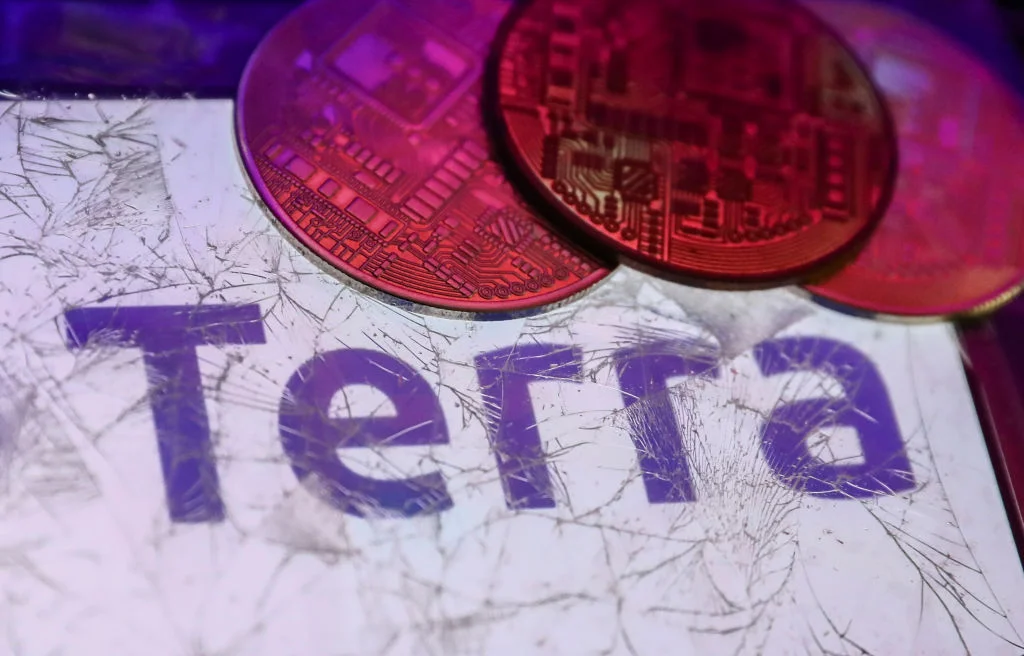Jump Trading, a firm associated with Terraform Labs, has been accused in an Illinois district court lawsuit of manipulating the price of the collapsed algorithmic stablecoin, TerraUSD (UST). Court documents from May 9 suggest that Jump Trading bought millions of UST tokens in 2021 with an intent to artificially inflate its price to $1.
The plaintiff, Taewoo Kim, alleges that Jump Trading and its CEO, Kanav Kariya, breached the Commodity Exchange Act, Commodity Futures Trading Commission (CFTC) regulations, and engaged in common law unjust enrichment.
The lawsuit claims that Jump Trading was an early supporter and the primary financial contributor to Terraform Labs. From November 2019 to September 2020, Jump Trading allegedly made several agreements with Terraform and its affiliates. The agreements allowed Jump to borrow tens of millions of Terra LUNA tokens from Terra and to offer market-making services for LUNA, UST, and aUST transactions.
In return, Jump Trading had the opportunity to buy LUNA tokens at a significant discount, which could then be sold on the market for profit.
The legal filing states that in May 2021 — a year before Terra’s ecosystem collapsed — the UST stablecoin algorithm failed to maintain its $1 peg. This led Terraform and its CEO, Do Kwon, to orchestrate trades to support the token’s price:
“Rather than publicly admitting TFL’s algorithm’s failure to maintain UST’s advertised peg price (which was fundamental to the perceived market value of UST and aUST), TFL and Kwon secretly conspired with Defendant Jump to manipulate the market prices for UST and aUST by making secret, coordinated trades to maintain UST’s $1 peg.“
The alleged scheme involved Jump Trading buying over 62 million UST tokens between May 23 and May 27, 2021. This action reportedly artificially increased UST’s price to $1 and also inflated aUST’s price.
The court filing alleges that Terra and Kwon altered their initial agreements to reward Jump for its purported market manipulation. They reportedly gave Jump more than 61.4 million LUNA tokens at a discount of over 99% from their market price at the time. Jump allegedly later sold these LUNA tokens in the market for a profit exceeding $1.28 billion.
Cointelegraph tried to reach out to Jump Trading regarding the lawsuit but received no immediate response.
On March 13, Bloomberg reported that U.S. prosecutors are scrutinizing a Telegram chat group discussion involving Jump Trading, Alameda Research, and Jane Street Group about a potential TerraUSD stablecoin bailout.
The U.S. Justice Department is also investigating the stablecoin’s collapse, which led to a $40 billion loss in the Terra ecosystem in May 2022. The Federal Bureau of Investigation and the U.S. Attorney’s Office for the Southern District of New York have questioned former Terraform Labs staff recently.
Kwon was arrested in Montenegro in March for allegedly using fake documents. South Korean and U.S. authorities are seeking his extradition. He was released on bail for 400,000 euros on May 12 and is currently under house arrest.
Florida’s Governor Ron DeSantis has endorsed a bill that limits the application of central bank digital currencies (CBDCs) within the state, as reported by local media. DeSantis had earlier in March urged the state legislators to craft this bill.
The newly ratified law disallows the use of a CBDC of the United States as legal tender under Florida’s Uniform Commercial Code (UCC). It further proscribes the use of CBDCs issued by foreign governments and encourages other states to enact similar restrictions in their respective commercial codes.
At the bill’s signing event, DeSantis expressed that his decision was influenced by the current U.S. administration, led by President Joe Biden, and its exploration of this nascent financial technology. He noted that despite the U.S. not having a CBDC or any immediate plans to roll one out, he believes the exploration implies an intent to do so.
“If they didn’t have plans to implement this, they wouldn’t have studied it,” he remarked. DeSantis further opined that the issuance of a U.S. CBDC would signify a significant power shift from consumers to a centralized authority.
He also perceived the possible launch of a CBDC as a threat to existing cryptocurrencies, stating, “I believe they aim to marginalize and abolish other forms of digital assets like cryptocurrencies because they lack control over them, which they detest.”
The enacted bill introduces modifications to Florida’s prevailing commercial code. DeSantis cited a growing trend among states to incorporate CBDCs into their Uniform Commercial Codes, which he believes is influenced by powerful entities. He said:
“We examined this and concluded, ‘… We are not going to include central bank digital currency in our commercial code,’ but we also decided, ‘… We need to implement safeguards for Floridians against this,’ and so we will specify in the Uniform Commercial Code that we do not recognize CBDC.”
#Binance under investigation for violating anti-#Russia sanctions https://t.co/UWhUjaVqjv
— Crypto Intelligence (@CryptoIntel_UK) May 11, 2023
Despite the allegations, the Uniform Law Commission has made efforts to quash any insinuations that it endorses the adoption of CBDC, even releasing a recent statement to clarify its stance.
John Montague, a legal expert from Florida-based Montague Law, informed Cointelegraph: “This bill implies that transactions involving CBDCs won’t enjoy the typical UCC protections, which might discourage entities or individuals from conducting such transactions using CBDCs.” He continued, “The UCC can impose obligations and modify rights of third parties, even without their explicit contractual agreement. Florida possesses the power to amend this definition.”
The law will be operational from July 1.
The crypto community associated with the PEPE memecoin has expressed significant displeasure following an email from Coinbase labeling the Pepe meme as a “hate symbol” exploited by alt-right groups.
Borovik.eth, a notable cryptocurrency influencer, shared a screenshot of Coinbase’s email newsletter dated May 10 with his 96,000 followers. The email referenced a 2016 decision by the Anti-Defamation League to categorize the frog-themed character as an online hate symbol.
The characterization of the token incensed the memecoin’s followers and holders, leading to demands for Coinbase to apologize. In response, some users have begun closing their Coinbase accounts.
A Twitter user and solidity developer, Kenobi, argued that Pepe is not a hate symbol and announced his intention to shift his funds to the US-based crypto exchange, Gemini. He ended his tweet with the hashtag “#deletecoinbase”.
The hashtag “#deletecoinbase” has since become a trending topic on Twitter, amassing more than 14,000 tweets in the last two hours, according to Tweetbinder data.
After Binance added the token for trading on May 5, other members of the Crypto Twitter community who hold Pepe have been urging various cryptocurrency exchanges to also list the token. Coinbase, however, has given no hint as to whether it plans to add the Pepe token to its platform.
When approached for comment, a Coinbase representative stated that the exchange had “nothing further to add” in an email to Cointelegraph.
Interestingly, Cameron Winkelvoss, CEO of Gemini, seems to have paid attention to the community’s request. On May 9, the Winklevoss-owned crypto exchange added the memecoin for trading, providing a more neutral description of the new token.
Following the news about Coinbase’s email, the price of Pepe dropped 2.6%. At the time of writing, Pepe was trading at $0.00000184, marking a decrease of 10.4% over the past 24 hours, as per data from CoinGecko.
Coinbase’s Chief Legal Officer, Paul Grewal, recently sent an open letter to the U.S. Securities and Exchange Commission (SEC) regarding the rulemaking process for Registered Investment Advisers (RIAs).
In the letter, Grewal emphasizes the need for regulatory clarity and urges the SEC to prioritize providing guidance for RIAs in the digital asset space.
Grewal’s letter highlights the challenges faced by RIAs dealing with digital assets, as the existing regulatory framework does not provide clear instructions on how to approach this emerging asset class.
He emphasizes that the lack of guidance is hindering the growth of the digital asset industry and could potentially harm investors in the long run.
The letter also addresses the importance of understanding the unique characteristics of digital assets and the need for a tailored regulatory approach. Grewal suggests that the SEC should consider the underlying technology and the various use cases of digital assets while formulating rules for RIAs.
Grewal further urges the SEC to collaborate with industry participants, as they can provide valuable insights and expertise to help create a balanced regulatory framework. By engaging with the digital asset industry, the SEC can better understand the technology, its risks, and its benefits, ultimately leading to more effective regulation.
In conclusion, the open letter from Coinbase’s legal chief highlights the pressing need for regulatory clarity in the digital asset space. It calls on the SEC to prioritize providing guidance for RIAs and to engage with industry participants in order to create a comprehensive and balanced regulatory framework that fosters growth and protects investors.
Amid concerns about a potential denial-of-service (DoS) attack on the Bitcoin network, several prominent Bitcoin maximalists have stepped forward to allay fears, insisting that the network remains secure and robust.
Rumors of a potential DoS attack began circulating when users started noticing delays in Bitcoin transactions. This fueled speculation that malicious actors were attempting to flood the network with low-fee transactions in order to slow it down.
However, Bitcoin maximalists were quick to refute these claims, emphasizing that the network is designed to withstand such attacks. These experts argue that the recent congestion is primarily due to an increase in legitimate trading activities, as well as a higher demand for block space.
Notably, Bitcoin developer Jimmy Song took to Twitter to address the concerns, stating that the network is not under attack and that the delayed transactions are simply a result of increased demand. Song further clarified that Bitcoin’s sophisticated fee system is designed to prevent DoS attacks by prioritizing transactions with higher fees, ensuring that the network remains functional even during periods of high demand.
Other prominent figures in the Bitcoin community, such as Adam Back, CEO of Blockstream, and Jameson Lopp, CTO of Casa, also chimed in to support this stance. They emphasized that the Bitcoin network has demonstrated its resilience over the years and that it is highly unlikely that a DoS attack could be successful in disrupting the network.
While the recent congestion on the Bitcoin network has raised concerns, the reassurances from Bitcoin maximalists have helped to ease fears and reinforce the network’s reputation for security and reliability. Users are encouraged to remain patient during periods of high demand and adjust their transaction fees accordingly to ensure timely processing.
For the second time within a 12-hour timeframe, Binance, the world’s largest cryptocurrency exchange by trading volume, has temporarily halted Bitcoin (BTC) withdrawals. The exchange has assured its users that the suspension is only temporary and is due to network congestion.
On May 7th, Binance first announced that it had suspended Bitcoin withdrawals for a brief period. The exchange cited a “large backlog of outgoing BTC transactions” as the reason for the halt. Within a few hours, the platform resumed its withdrawal services, but only to suspend them again later in the day.
Binance’s CEO, Changpeng Zhao, took to Twitter to address the situation, explaining that the suspensions were necessary to address the congestion and ensure the smooth functioning of the platform. He assured users that their funds were safe and that the situation would be resolved as quickly as possible.
The suspension of Bitcoin withdrawals on Binance has raised concerns among users and the wider cryptocurrency community, with some speculating about the possibility of a security breach or other issues. However, no evidence has been found to support these claims, and Binance has maintained that the issue is purely related to network congestion.
In the past, Binance has experienced similar issues with other cryptocurrencies, such as Ethereum, due to increased trading volumes and congestion on the networks. The exchange has always managed to resolve these issues swiftly, and it is expected that the current situation with Bitcoin withdrawals will be no different.
While the temporary suspension of Bitcoin withdrawals on Binance may cause inconvenience for some users, the platform’s commitment to addressing the issue and ensuring the safety of its users’ funds has been appreciated by the community.
Bitcoin’s price has reached a new high for May, surpassing $29,500, as traders keep a close eye on the potential for a breakout. The leading cryptocurrency has been experiencing significant fluctuations in recent weeks, with both gains and losses seen in the market.
The recent upswing in Bitcoin’s price has been attributed to a combination of factors, including positive market sentiment, increased institutional adoption, and the growing mainstream acceptance of cryptocurrencies. Furthermore, the ongoing discussions around the potential for inflation have led some investors to view Bitcoin as a hedge against inflationary pressures.
As Bitcoin’s price continues its upward trajectory, traders are closely monitoring the market for signs of a breakout, which could potentially push the cryptocurrency to new heights. Some analysts believe that if Bitcoin can maintain its momentum and surpass key resistance levels, it could open the door for substantial gains in the near future.
However, market participants should remain cautious, as the cryptocurrency space is notoriously volatile and can be subject to rapid price fluctuations. While some traders are optimistic about Bitcoin’s prospects, others warn of potential risks and uncertainties that could impact its trajectory.
The recent surge in Bitcoin’s price highlights the growing interest in cryptocurrencies, as well as their potential to play a significant role in the global financial landscape. As traders and investors continue to monitor Bitcoin’s performance, its future trajectory will likely be shaped by ongoing developments in the cryptocurrency ecosystem, regulatory changes, and broader market trends.
A blockchain security firm recently intervened to freeze $160,000 in assets stolen during a rug pull event involving the Merlin DEX platform. The security company’s prompt action demonstrates the effectiveness of countermeasures against malicious activities in the decentralized finance (DeFi) space.
Merlin DEX, a decentralized exchange, fell victim to a rug pull, a type of scam where project founders or developers withdraw liquidity from a project, leaving investors with worthless tokens. In this incident, bad actors were able to make away with a significant amount of funds before the security firm intervened.
Upon detecting the suspicious activity, the blockchain security company swiftly moved to freeze the stolen assets, effectively preventing the scammers from further accessing or moving the funds. This decisive action underscores the importance of robust security measures in safeguarding investments and maintaining trust within the DeFi ecosystem.
While the DeFi space continues to experience rapid growth and attract new investors, it is also increasingly targeted by scammers and other bad actors. This incident serves as a reminder of the risks associated with decentralized finance and the critical role that security firms play in protecting the industry from fraudulent activities.
As the DeFi landscape evolves, the collaboration between projects, investors, and security firms will be essential to minimize threats and ensure the long-term success of the decentralized finance ecosystem.
Coinbase, one of the leading cryptocurrency exchanges, has decided to halt the issuance of new Bitcoin-backed loans via its Borrow service. The exchange made this announcement on its website, but assured customers that existing loans would remain unaffected and continue as per their terms.
The Borrow service, launched by Coinbase in 2020, allowed qualified customers to borrow cash against their Bitcoin holdings. This move to discontinue new loans comes amidst increasing regulatory scrutiny of cryptocurrency lending services and related products. However, the specific reasons for the suspension of new loans have not been provided by the company.
Existing loans will continue to be serviced by Coinbase, with customers required to meet their repayment obligations as stipulated in the loan agreements. The company has emphasized that this change will not impact the other services offered on their platform.
While the decision to cease issuing new Bitcoin-backed loans marks a significant change for Coinbase, the company remains focused on expanding its offerings to cater to the evolving demands of the cryptocurrency market. As the regulatory environment evolves, it is expected that exchanges like Coinbase will continue adapting their services to maintain compliance and support the growth of the crypto ecosystem.
Kraken, one of the largest crypto exchanges in the world, is set to imminently lay off an additional 400 employees, sources told Crypto Intelligence News on Tuesday.
They warned that further job cuts could be on the horizon, as Kraken “still has employees that are surplus to requirements.”
The US-based crypto exchange didn’t respond to a request for comment by Crypto Intelligence News.
The planned job cuts will come amid the crypto market partially recovering, with Bitcoin rallying by around 21 percent in the last three months, according to CoinMarketCap data.
Ethereum, the world’s second-largest cryptocurrency, has seen its price increase by around 14.3 percent over the same period, trading at around $1,871 on 2 May.
In November, Kraken announced that it would be laying off 1,100 employees, which at the time accounted for around 30 percent of its total workforce.
CEO Jesse Powell explained in a blog post that the cuts were necessary to realign the company’s headcount with demand, which had taken a significant hit due to crypto prices tanking.
“We had to grow fast, more than tripling our workforce in order to provide those clients with the quality and service they expect of us,” Powell said.
“This reduction takes our team size back to where it was only 12 months ago.
“I remain extremely bullish on crypto and Kraken,” he added.
And in early February, Kraken announced more lay-offs, with it shuttering its Abu Dhabi office and consequently axing eight employees in the UAE capital.












